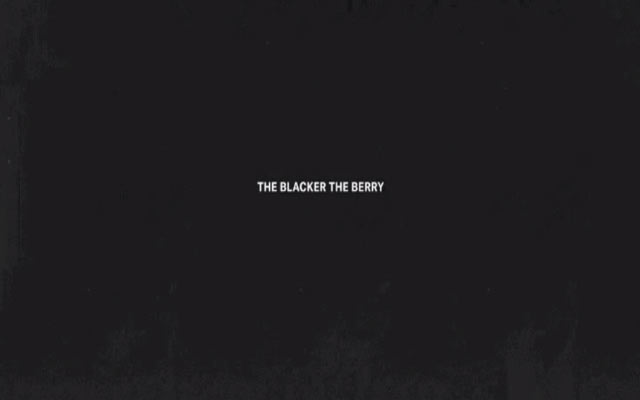First off: Kendrick Lamar doesn’t seem to need a lot of help. At this point, he’s at the top of his game, and his highly anticipated follow up to 2012’s "Good Kid, m.A.A.d city" is already one of the most talked about album in years — and it still doesn’t have an official release date.
But when the rapper dropped his latest track, the searingly political "The Blacker the Berry," he created another wave of excitement, the ripples of which are being felt by one of the year’s biggest TV dramas and one of America’s favorite authors.
Lamar didn’t just drop his latest gem anonymously. He let Taraji P. Henson, star of Fox’s enormously popular hip-hop drama "Empire," listen to the album and choose which single he should release. Henson chose "The Blacker the Berry," which she tweeted out to her three million followers:
Here is a working link for my fav song on @kendricklamar new joint he has coming!!!! https://t.co/4N43lrWJYv ????????????
— Taraji P. Henson (@TherealTaraji) February 9, 2015
The song caught fire, gaining more than one million plays in less than 12 hours. The day after it was released, Pulitzer Prize-winning author Michael Chabon took up the task of annotating it for the the website Genius, which has tasked itself trying to give context for society’s big cultural products. While Lamar rapped, "So why did I weep when Trayvon Martin was in the street?/ When gang banging make me kill a nigga blacker than me?/ Hypocrite!," Chabon wrote:
In this final couplet, Kendrick Lamar employs a rhetorical move akin to–and in its way even more devastating than–Common’s move in the last line of "I Used to Love H.E.R.": snapping an entire lyric into place with a surprise revelation of something hitherto left unspoken. In "H.E.R.", Common reveals the identity of the song’s "her"–hip hop itself–forcing the listener to re-evaluate the entire meaning and intent of the song. Here, Kendrick Lamar reveals the nature of the enigmatic hypocrisy that the speaker has previously confessed to three times in the song without elaborating: that he grieved over the murder of Trayvon Martin when he himself has been responsible for the death of a young black man. Common’s "her" is not a woman but hip hop itself; Lamar’s "I" is not (or not only) Kendrick Lamar but his community as a whole. This revelation forces the listener to a deeper and broader understanding of the song’s "you", and to consider the possibility that "hypocrisy" is, in certain situations, a much more complicated moral position than is generally allowed, and perhaps an inevitable one.
Complex offers up more detail in this video:
It’s already been one helluva week for Lamar. He won two Grammys, dropped a classic song, and has already helped shift the cultural conversation around policing and racism in America. And it’s only Wednesday.
